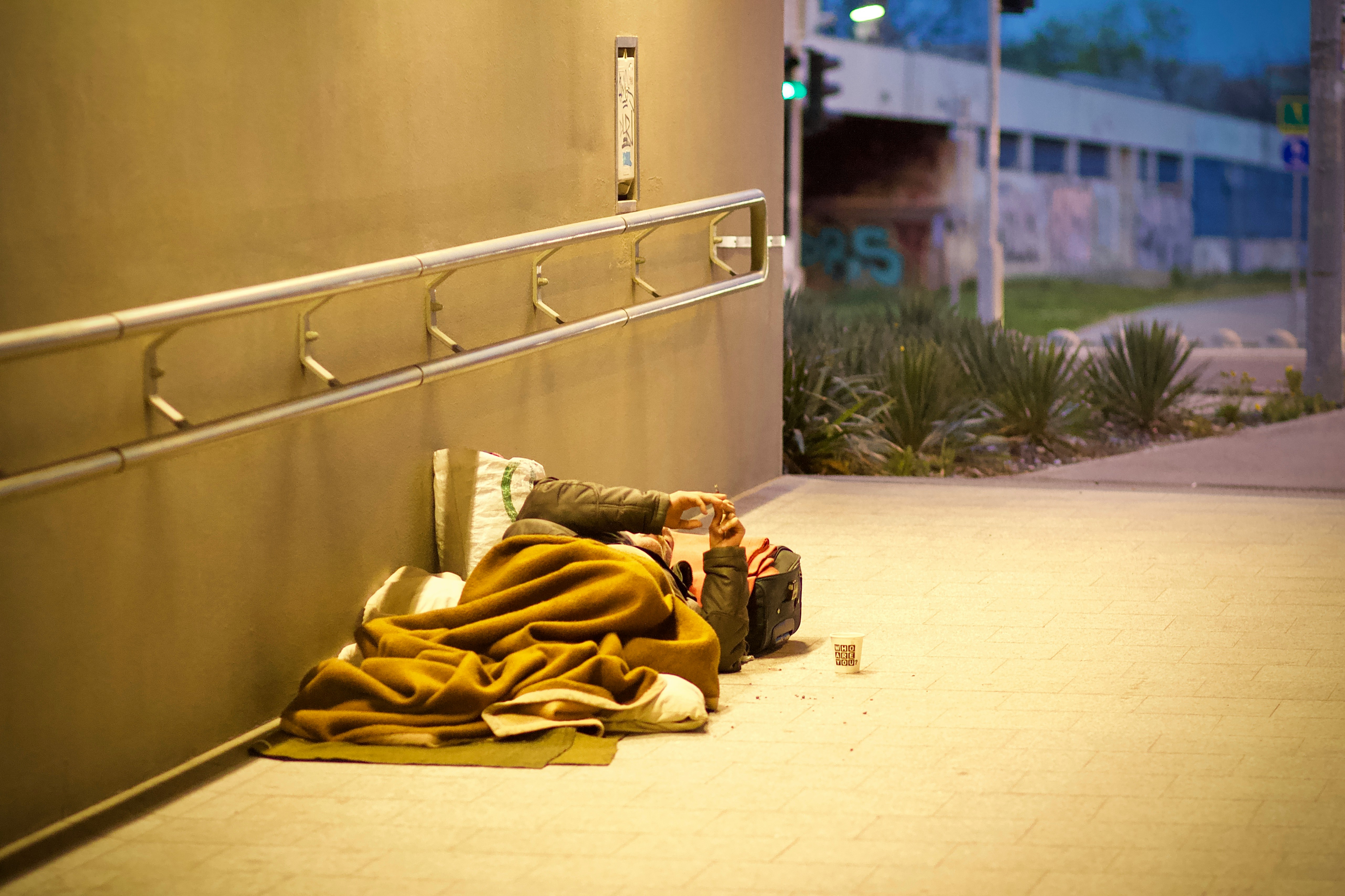
Primary Research
My main Primary Research question was: To what extent do individuals experiencing homelessness report mental health challenges as a barrier to stable housing? The primary research for this project was conducted using a survey designed to gather expert insights into the challenges and barriers faced by individuals experiencing homelessness. Unfortunately, due to limited responses (only one response was received), the data collected does not provide a comprehensive view of the issue. Additionally, many experts did not respond to email inquiries, which further limited the scope of the research.
The survey respondent, an experienced professional in the field, shared valuable insights. They highlighted mental health challenges as significant barriers to accessing aid, exacerbated by a lack of coordinated services. Current systems addressing mental health and homelessness were described as “not very coordinated,” with many providers lacking training to address specific needs. Recommendations emphasized the importance of increasing affordable housing and integrating mental health services with other aid programs.
Despite the limitations, these findings align with themes from secondary research, reinforcing the critical role of systemic solutions in addressing homelessness. This highlights the need for continued investigation and more robust participation from experts to deepen our understanding of this pressing issue.
The full list of questions and answers are down below:
==================================================
Q: In your professional experience, how often do mental health challenges serve as barriers for individuals experiencing homelessness to access aid? A: Sometime Q: To your knowledge and expertise, what are the most common mental health challenges that act as barriers for individuals experiencing homelessness? A: This is a complicated question. It depends on which sub-populations of homeless individuals you're referring to: people living on the street, for example, confront many more (and different) challenges to their mental health (lack of sleep, harassment by passers-by and security, the stress of constant vigilance, having to find safe spaces to spend the night, etc.) than do homeless families with children—incidentally, by far the largest sub-population of sheltered homeless people in a place like NYC. So in responding to your other questions, I'm going to assume that we're speaking specifically about homeless individuals living on the street or in some other unofficial kind of shelter (abandoned building, highway underpass, secluded place in a public park—all of which, by the way, may well be illegal forms of "occupancy" in a particular jurisdiction). Q: In your opinion, how effective are current support systems in addressing mental health-related barriers to aid? A: This is a complicated question. It depends on which sub-populations of homeless individuals you're referring to: people living on the street, for example, confront many more (and different) challenges to their mental health (lack of sleep, harassment by passers-by and security, the stress of constant vigilance, having to find safe spaces to spend the night, etc.) than do homeless families with children—incidentally, by far the largest sub-population of sheltered homeless people in a place like NYC. So in responding to your other questions, I'm going to assume that we're speaking specifically about homeless individuals living on the street or in some other unofficial kind of shelter (abandoned building, highway underpass, secluded place in a public park—all of which, by the way, may well be illegal forms of "occupancy" in a particular jurisdiction). Q: In your opinion, how well-informed are individuals experiencing homelessness about available mental health services? A: Somewhat informed Q: From your knowledge and expertise, to what extent do mental health challenges hinder the ability of homeless individuals to access aid services (e.g., housing, food, healthcare)? A: Neutral Q: What are the key gaps in aid systems when addressing mental health challenges for homeless populations? A: Re above question: really 3 questions, which is why I left it blank: - pertains to what percentage of street-dwelling homeless people are suffering from mental health challenges; - how severe are those challenges; and - how well have local service providers adapted their approaches to reach such folks. Even when 3) is done by seasoned practitioners, once "reached" those folks are still going to need a permanent place to live—and THAT is still the major challenge in almost every jurisdiction I'm familiar with: the lack of decent, affordable, and appropriately supportive permanent housing. Q: How well-coordinated are mental health services with other aid programs (e.g., housing or employment support)? A: Not very coordinated Q: Do you believe that aid providers are adequately trained to address the mental health challenges of homeless individuals? A: Neutral Q: What interventions or strategies have you found to be the most effective in reducing mental health barriers to aid? A: Blank answer again: it depends entirely on the local jurisdiction you're referring to. In a place like NYC, we have (after 40+ years of doing it) extraordinarily seasoned teams of outreach workers but still lack the necessary supply of supportive housing once they are engaged. Q: What changes or improvements would you recommend to reduce mental health challenges as barriers to aid for homeless individuals? A: Biggest need is an adequate supply of affordable and supportive permanent housing.
==================================================
This portion of the site was brought to you by my primary research. My interview results can be found here (ALWAYS UPDATED).